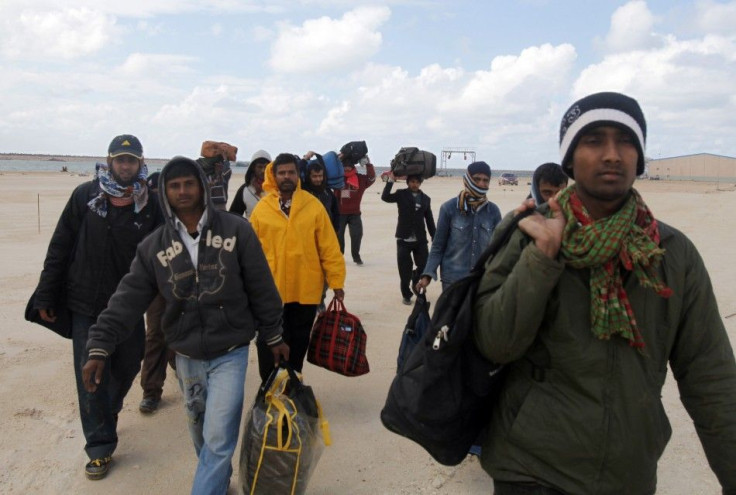Bangladesh government set to airlift citizens trapped in Libya

The government of Bangladesh said it is increasing efforts to help rescue thousands of its citizens who remain trapped in Libya.
About 50,000 Bangladeshis are believed to be stranded, with almost 12,000 at the border with Tunisia and another 5,000 on the Egypt border.
Bangla officials said they plan to airlift the people stuck on the borders over the next two weeks through the national carrier Biman and private aircraft.
Bangladesh’s foreign minister Dipu Moni told the BBC that more than 11,000 people had so far been brought home, with help from the International Organization for Migration (IOM).
There are many limitations. It is not a happy situation, the foreign minister said. Still, the government is doing its best. We have been working from the very beginning to assist stranded Bangladeshis. We are going to share the cost of transporting the workers back home with the IOM.
Families of Bangladeshis in Libya have bitterly criticized the Dhaka government of its slow response to the worsening emergency.
One Bangladeshi migrant who was able to cross into Egypt complained to Agence France Presse (AFP): There were no embassy officials at the border. Other countries' officials were processing visas and giving food to their workers. We had no one to help us. I am lucky because my company financed my return. Thousands more were living there with little food and in extreme cold.”
Also, the bodies of three Bangladeshis who perished after they jumped from a ship that was carrying people from Libya to Greece have arrived in Dhaka. According to reports, several dozen Bangladeshis jumped from the ship when it arrived at the island of Crete. Eleven of them are still missing, and it is unclear why they jumped.
According to other reports, it is believed that some Bangladeshis do not want to leave Libya because it would mean losing their jobs.
In fact, Bangladesh's manpower secretary Zafar Ahmed Khan told AFP: “We are discouraging those Bangladeshi who are still in Libya from coming back. These are poor workers. We are afraid if they come back they will lose everything. If they are not in direct danger, we advise them to stay where they are.
Bangladeshis, most of whom work in the construction trade, are among the largest foreign workers group in the country.
© Copyright IBTimes 2024. All rights reserved.











